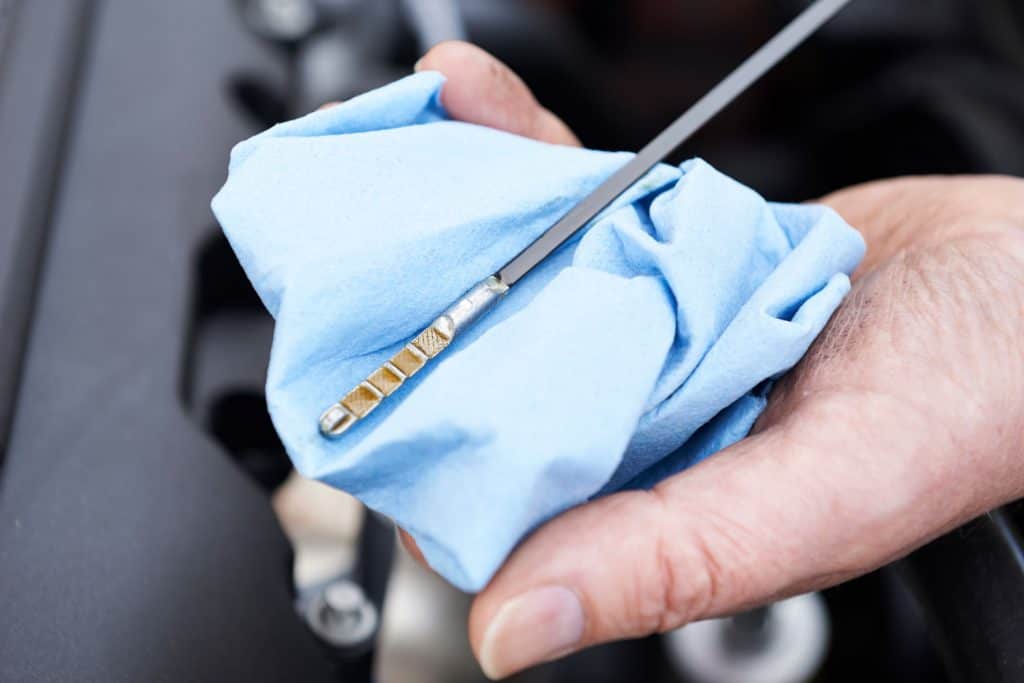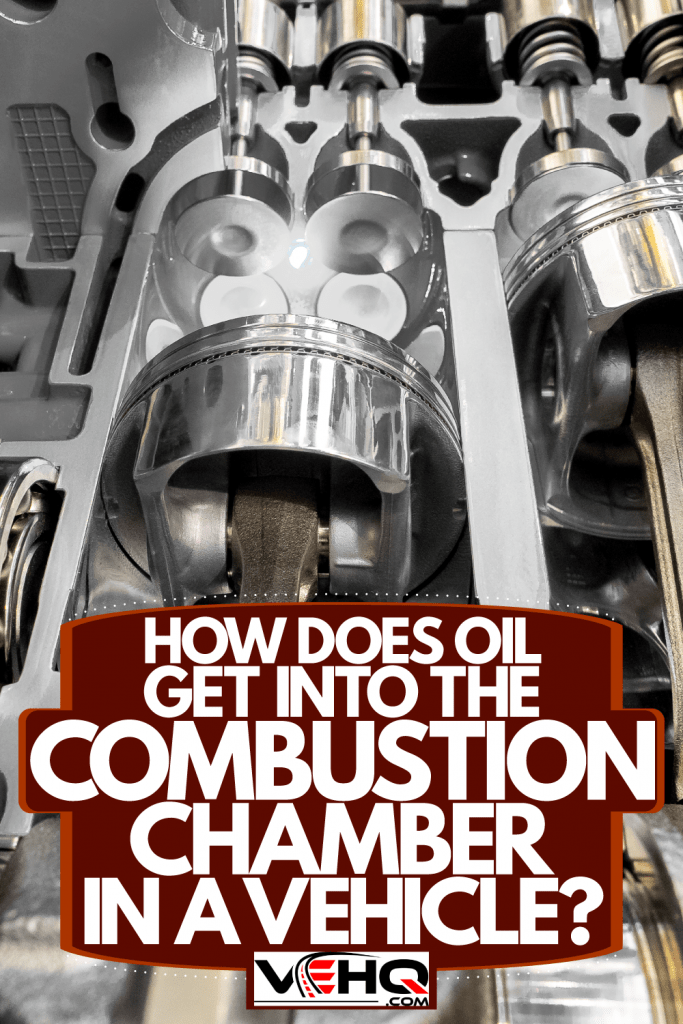Even if you don't know much about cars, you probably still know that engine oil is an integral component of a vehicle's operation. And at some point, you have probably heard someone say that a car is "burning oil." But how exactly does oil make its way into the combustion chamber? We did the research to bring you the answer.
As an engine wears down over time, the piston rings lose their ability to provide an adequate seal against the cylinder wall. This allows oil to seep into the combustion chamber and burn along with the gasoline-air mixture.
If you still have some lingering questions about engines burning oil, don't worry. In this guide, we'll discuss the topic at length. We'll also talk about how to tell if your car is burning oil, whether or not high mileage vehicles are prone to burning oil, and more. Without further ado, let's get into it.
How Oil Gets Into The Combustion Chamber
As mentioned, oil can make its way into the combustion chamber when the piston rings no longer adequately seal off the combustion chamber. Then, as the engine runs, small amounts of oil will gradually enter the combustion chamber.
What Happens If Oil Enters The Combustion Chamber?
If oil seeps into the combustion chamber past the piston rings, it will simply combust along with the gasoline-air mixture and be expelled through the exhaust system. In other words, oil getting into the combustion chamber is a slow process, so there won't be any obvious signs or warning lights indicating that it's happening.
Why Do Engines Use Oil?
You probably know that oil is critical when it comes to the health and function of a car engine, but why exactly is it necessary?
Simply put, engines need oil because oil transfers heat away from the engine's components as it flows throughout the engine. Engine oil also provides much-needed lubrication to the components in the engine.
Should Engines Burn Oil?
In a perfect world, engines wouldn't burn a drop of oil between oil changes. And depending on the vehicle and how new it is, little to no oil consumption might very well be the norm.
But in general, a small to moderate amount of oil consumption is considered normal, even with newer engines. In fact, some manufacturers claim that it's normal for as much as one quart of oil to be burned every 1,000 miles.
However, different manufacturers have different tolerances when it comes to engine oil consumption. To get a better idea of the acceptable rate of oil consumption in your vehicle, consult the vehicle's manufacturer.
How Do You Know If Your Car Is Burning Oil?
As mentioned, there are no overt indications of a subtle internal oil leak. However, there are a couple of surefire ways to determine whether or not your car is burning oil.
Exhaust Color
One way to tell if your car is burning oil is by the exhaust color. The first time you start your car on any given day, immediately hop out and go check out the exhaust. (If the car is in a garage, be sure to open the garage door prior to starting the car.)
If the exhaust has a blue tint, it indicates that oil is being burned. Since exhaust is generally invisible, this tint should be easy to see. But if the exhaust only has a blue tint briefly, this likely means that only a small amount of oil made its way into the combustion chamber overnight.
If the exhaust continues to burn with a blue tint, go about your normal business, and when you arrive at your destination, go check out the exhaust again before shutting the engine off. If the exhaust is still burning with a blue tint, this means that a substantial amount of oil is continually making its way into the combustion chamber.
Engine Oil Level

Another way to determine whether or not your engine is burning oil is by simply checking the oil level with the dipstick at a regular interval.
Check the oil dipstick and make note of the initial oil level. Then, check again at a constant interval (i.e. weekly, every other week, etc.), making note of each reading along with the mileage of the vehicle.
To ensure the most accurate results, ensure that the conditions at which the oil level is checked remain constant. For example, ensure that the oil level is checked when the engine is cold and when the vehicle is on a flat surface.
Once you have gathered several oil level readings, it should be fairly obvious to tell whether or not the engine is burning oil. If the car does appear to be burning oil, be sure to inspect the garage floor or driveway to determine if the culprit is really an external oil leak.
To take this test a step further and make it more precise, make note of the driving conditions, such as the number of city miles vs. highway miles. If your car is burning oil, this will give you a better idea of just how much oil you can expect to burn in different driving conditions.
What Happens If You Put Too Much Oil In Your Car?
If you determine that your engine is burning oil, you may choose to occasionally top it off. However, doing so might make you wonder what might happen if you put too much oil in the engine.
In reality, too much oil in the engine can actually be just as harmful as having too little oil. Excess oil in the engine will increase pressure which can wreak havoc on the engine's components. So, if you do choose to top off the oil from time to time, take care not to add too much.
Do High Mileage Vehicles Burn Oil?
Older vehicles and those with higher mileage are prone to burning more oil than newer engines with less mileage. Simply put, an engine becomes more susceptible to oil leaks as its components are worn, namely the piston seal.
With that being said, the driving conditions the engine has been subjected to throughout its life will also come into play.
For example, a vehicle with higher mileage might not burn oil if the majority of the mileage is from the highway, as highway driving is less strenuous on the engine and its components. On the other hand, an engine that has fewer total miles but a greater ratio of city to highway miles might start burning oil sooner due to the increased strain on the engine.
In Closing
We hope this guide has helped you better understand how oil makes its way into the combustion chamber. Remember, some oil consumption is considered normal, but excessive oil consumption can be problematic. Before you go, be sure to take a look at these other guides that might be of interest:
7 Of The Best Oil Additives For Older Engines

